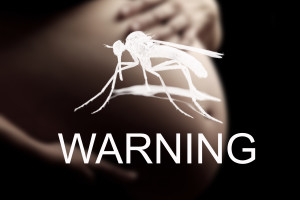The Latest in Zika Safety. Stay Protected This Summer.
 There may be less buzz about the Zika virus this summer, but that doesn’t mean that women — especially pregnant women — don’t still need to be extremely cautious and aware of the risks when traveling and spending time outside. Zika, the virus transmitted by mosquitos, sex, and blood transfusions, and which may cause birth defects when passed from mother to fetus, is still a threat to travelers of South and Central America, and in some southern American states.
There may be less buzz about the Zika virus this summer, but that doesn’t mean that women — especially pregnant women — don’t still need to be extremely cautious and aware of the risks when traveling and spending time outside. Zika, the virus transmitted by mosquitos, sex, and blood transfusions, and which may cause birth defects when passed from mother to fetus, is still a threat to travelers of South and Central America, and in some southern American states.
In addition, there is still no vaccine or medicine to treat Zika, which means the best way to stay safe from the virus is through prevention. All women, but especially those who are pregnant or thinking of becoming pregnant, should understand the latest threats, travel safety recommendations, and most importantly, how to stay safe and protected from the threat of contagion this summer.
What We Know About Zika
The type of mosquito that can spread the Zika virus — The Aedes species of mosquito — naturally occurs in many areas across the United States, as well as in Central and South America and other warm climates across the globe. As of May 2017, the Centers for Disease Control and Prevention (CDC) estimate that there were at least 50 countries and territories with active Zika virus transmissions.
While it’s been known that Zika can cause the birth defect microcephaly when transmitted from a mother to her fetus, doctors have also found a link between Zika and other types of birth defects. We also now know that Zika does not only put fetuses at risk. The CDC is researching the link between Zika and Guillain-Barré Syndrome, a rare autoimmune disorder that may lead to life-threatening paralysis.
Summer Travel Plans? Stay Protected from Zika
If you plan to travel this summer, be aware of both the national and international areas where Zika poses the highest risk. According to the CDC, in the United States, the areas at the highest risk of Zika include Brownsville, Texas, and Miami-Dade County, Florida. In addition, pregnant women should not travel to any countries or areas that have received a Zika-related travel warning.
This map from the CDC summarizes the countries and territories that pose the highest risk. Currently, the CDC has issued Zika-related travel notices for Mexico, the Maldives, parts of the Caribbean, Central and South America, and several of the Pacific Islands.
The Latest CDC Tips for Zika Prevention
As long as the threat of Zika remains high, continue to follow the latest prevention tips and best practices from the CDC:
- Protect yourself from exposure to mosquito bites by wearing insect repellent during the day and night, wearing long-sleeved shirts, and eliminating any standing water from your property.
- Especially if pregnant or planning to become pregnant, do not travel to areas with high risks of Zika.
- Most adults who contract Zika won’t demonstrate symptoms, which is why pregnant women whose partners have traveled to an area with an elevated Zika risk should follow safe sex practices.
For more on the latest from the CDC regarding Zika, click here. If you are pregnant or planning to become pregnant, and have questions or concerns about the risk of Zika in your area, talk to your OBGYN.
More